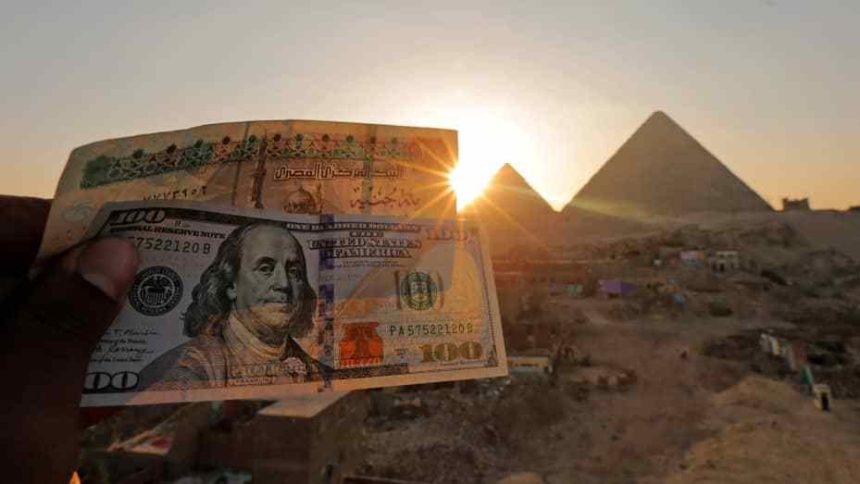
Egypt’s sovereign dollar bonds experienced a significant decline on Tuesday, eroding much of the gains achieved following a highly anticipated visit from Saudi Crown Prince Mohammed bin Salman last week.
Despite widespread expectations of a major announcement regarding fresh Saudi investments in Egypt, the crown prince departed without making any concrete commitments. The 2059 maturity on Egyptian Eurobonds, as tracked by Tradeweb data, fell by 1.4 cents on the dollar, marking a substantial drop from its peak following the Saudi visit.
Egyptian media outlets had previously reported on potential Saudi sovereign investments in the Red Sea region, including Ras Banas and Ras Gamila. These investments were seen as a follow-up to the $24 billion sale of Mediterranean coast real estate rights to the UAE’s sovereign fund ADQ earlier this year.
The UAE sale played a crucial role in enabling Egypt to secure an $8 billion financial reform package from the International Monetary Fund (IMF). However, the IMF’s conditions, which include reducing subsidies and allowing the currency to float freely, have faced significant public backlash.
Egyptian President Abdel-Fattah al-Sisi recently warned that Egypt may need to reconsider the IMF program if international institutions fail to take into account the region’s challenges. The ongoing turmoil in the region has resulted in a loss of $6 billion to $7 billion in revenues for Egypt over the past seven to ten months.
Attacks on Red Sea shipping by Yemen’s Houthi rebels have diverted traffic from the Suez Canal, leading to a decline in revenue from the waterway. Egyptian officials are currently participating in IMF and World Bank meetings in Washington, where they are expected to discuss these issues and seek further support.
While the meeting between bin Salman and Sisi focused primarily on regional diplomatic matters, they did sign agreements to encourage mutual investments and establish a council to strengthen economic ties. Additionally, separate private Saudi investment deals are expected to inject $15 billion into Egypt’s economy.
